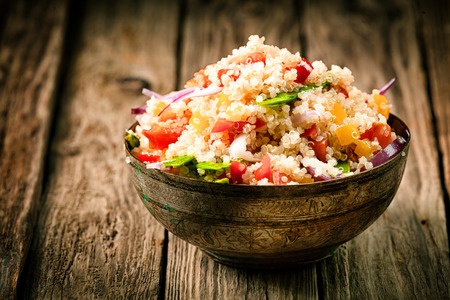Nutrition can be both exciting and intimidating at the same time. We all love food, yet there is such a big ball of confusion when it comes to what to eat, how much to eat and combining that with exercise it just leaves the same simple question – what do I eat?
This beginner’s guide to eating for strength training will help you to identify what to eat, how much to eat and why to eat it. The basics can be applied to many of you on a health and fitness journey, however if you are lifting the weights it is crucial to understand the importance of nutrition and how it will support your goals with strength training.
If you missed the previous article on how to get started with lifting weights, take a read of Strength Training for Women – A Beginner’s Guide. Apply those basics with these nutrition basics and you will be fully set ready to conquer your fitness goals! Here’s some of what you need to know about eating for strength training to get started.
Basics of Eating for Strength Training
1. Eat Enough – Calories are your friend, not the enemy. Remember, calories are just a way to measure the amount of energy in food. This energy is used for everything your body does like breathing, digestion, producing hormones, and developing your body compostion. It is important to eat enough every single day so that the demands of your lifestyle, work, strength training, and other fitness activities are supported well enough to help you reach the goals you desire. Of course eating too much will lead to weight gain, however too little can have negative effects on your health, like extreme weight gain, or severe weight loss. You can count calories as long as you are aiming to eat enough and not trying to undercut the numbers. However, for the long term you can use the guide below to help with portion control. Remember, you can’t know exactly how your body will respond in advance. So stay flexible and adjust your portions based on your hunger, fullness, and goals.
For Women
- 1 Palm full of protein-dense foods with each meal
- 1 Fist-sized portion of vegetables with each meal
- 1 Cupped hand of carb-dense foods with most meals
- 1 Entire thumb of fat dense foods with most meals
2. Protein – Ensure protein is in each meal. Read more about why you should eat it every single day HERE and HERE.

3. Macronutrients – Focus on all three macronutrients (protein, fats and carbohydrates) every single day. Do not cut out or extremely minimise any one of the macronutrients as this will not help you for the long term. Protein will help satiety and build muscle, carbohydrates will help provide many nutrients, energy, aid in fat loss and building muscle, whilst fats will help support healthy hormones.
4. Fruit and Veg – Aside from eating enough food to give energy, support fat loss and build lean muscle, getting plenty of nutrients from delicious fruit and vegetables is just as important. There are so many wonderful nutrients such as vitamin C and the B vitamins that will support your body with energy for training and the stress on the body from training.
5. Iron Foods – Eat adequate amounts of iron rich foods as they will help to support energy and oxygen which are crucial for strength training. Foods such as: spinach, kale, spring greens, spirulina and quinoa.
6. Calcium Foods – Eat calcium rich foods as they will help to support strong bones and muscles, which are very important in strength training. Foods such as: kale, spinach, greens, sesame seeds and sardines.
7. Magnesium Foods – Eat magnesium rich foods as they will help energy production, strong bones, control inflammation and relax muscles which will be crucial for recovery from a workout. Foods such as: spinach, greens, raw cacao, pumpkin seeds, black beans and quinoa.
8. Fuel Pre-Workout – Fuel the body before a workout to reap the rewards! This doesn’t mean you need to chug down an energy drink before a session, however to get the full benefits of your workout you need to fuel the body. This depends on the time of day you workout, but don’t worry about nutrition timing – food doesn’t have to be too complicated!
- Early morning workout: ensure you had a good meal the night before and try to eat a little before the workout such as a piece of fruit and nuts.
- Late morning workout: have a solid breakfast at least one hour before.
- Afternoon or evening workout: you should have had a couple of solid meals throughout the day; therefore, your body should be fueled properly. However, if you are hungry have a little food at least one hour before the workout.
Stay tuned for next week as part two will uncover how many meals per day, examples of foods to eat with a sample day of meals.
Are you ready to feel strong and energised ladies?
[adform]


Leave a Reply